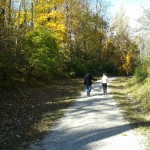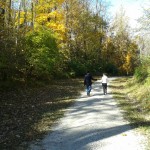Well, here we are with only two weeks left having travelled across the country to Austin, Texas. We have survived Halloween at DePauw University, Greencastle, although trick or treating had to be postponed to the Friday night because of the horrific rain, which might have confused the beasties!
The past 2 weeks have been relatively quiet, as we have only had 1 show. The previous week in Charlotte we had 4 shows, which all sold out! A triumphant week, which, was rounded off with a visit from Professor Matthew Davies and some of his students from Staunton. Matt is on the board of AFTLS and it was a while ago that we did our first showing to the guys in London so there were a few extra nerves that Saturday night, but by all accounts we did him proud.
After Charlotte we went on the Franklin, Indiana. This was AFTLS’ first trip to Franklin, University and I think it will be the first of many. We were met by Dean Ellis and taken to the University via lunch at a diner. And then on to student accommodation – which was a bit of a shock, especially later, on the morning after the show, coming out of the showers, wrapped in a towel to be greeted by a very excited student, gushing with wonderful words about the previous nights performance of Othello!!!!
Everyone was so lovely and one night we were invited to the theatre by one of the professors – (thank you Gordon) to see ‘ The 1940’s Radio Hour ‘ – not something I would normally have chosen to see but it turned out to be great fun, very little plot more a concert of 1940’s classics. We spent the weekend after our Franklin week in Broad Ripple, a beautiful town/village that sums up what you kind of think real America is going to be like, this may not make sense to anyone else but I suppose it looked like so many small towns in films.
Richard and myself continued our traditional Sunday afternoon walk to water and visited The Virginia B. Fairbanks Art and Nature Park. A beautiful park around a lake with added treats and curios including the abandoned boat and ‘lifeboat station’ with everything left just as it was when the ‘disaster’ happened.
After our weekend in Broad Ripple we were picked up by Ron and driven to Depauw – another beautiful campus – especially in the autumn, sorry fall – with the bright red, almost luminescent, maple trees.
We did a great show on the Tuesday night, slightly edgy as we hadn’t done one for a week, and a bonus moment when Bianca’s shoe came flying off her foot and ended up on the floor at the audiences feet – luckily for us we had a theatre pro, 12 year old Simon who graciously retrieved it for us and handed it to Cassio so he could return it to Bianca. Simon we owe you!!! I personally had an amazing teaching week, with two additions to the usual fabulous university classes.
On the Thursday Anna and myself had a trip out to a womens prison – it turned out to be a great class, and not in anyway threatening as we thought it might be. We took the willow scene with us and worked through it with them – unfortunately we ran out of time so couldn’t get them on their feet to show the work in progress and It was decided that we would show them our version of the scene, which was well met! We had an email from Kelsey who organised the programme and had been back at the prison on the Friday, she said:
‘had a lovely time at the prison on Friday listening to everyone’s excited chatter about your visit. As one of the women said, “For those few minutes, I wasn’t in prison anymore!” ‘
Very rewarding. Also rewarding was the trip I took on Friday to Cloverdale Middle/high School as part of the Fall Festival of Shakespeare, they are doing ‘The Taming of the Shrew’ Grace, who is directing it is brilliant and obviously loves what she is doing, has directed it with a cartoon theme, complete with ‘Pow’, ‘Bang’, ‘Thump’ cards to be held aloft during the fight scenes. And we spent some of the afternoon choreographing the reactions from the whole room in the last few scenes, with the gasps and looks of shock when the wives disobey their husbands and the screams of shock horror when Katherine appears! The students were deeply involved and enjoying every minute of it. I was really glad I got a chance to see them at work and looking forward to seeing the finished performance ( via video in December)
On Sunday I continued my tradition of a waterside walk with a trip to the nature Park, after a quick trip to see the East College, dating back to 1870, stunning hall – like an old chapel And the original university building, sooo glad we got to see it. Thank you so much Nathan and Emily for our guided tour.
























































